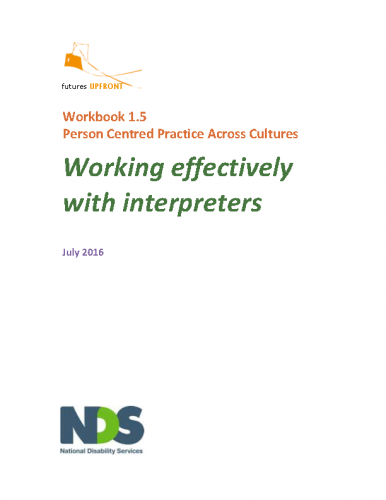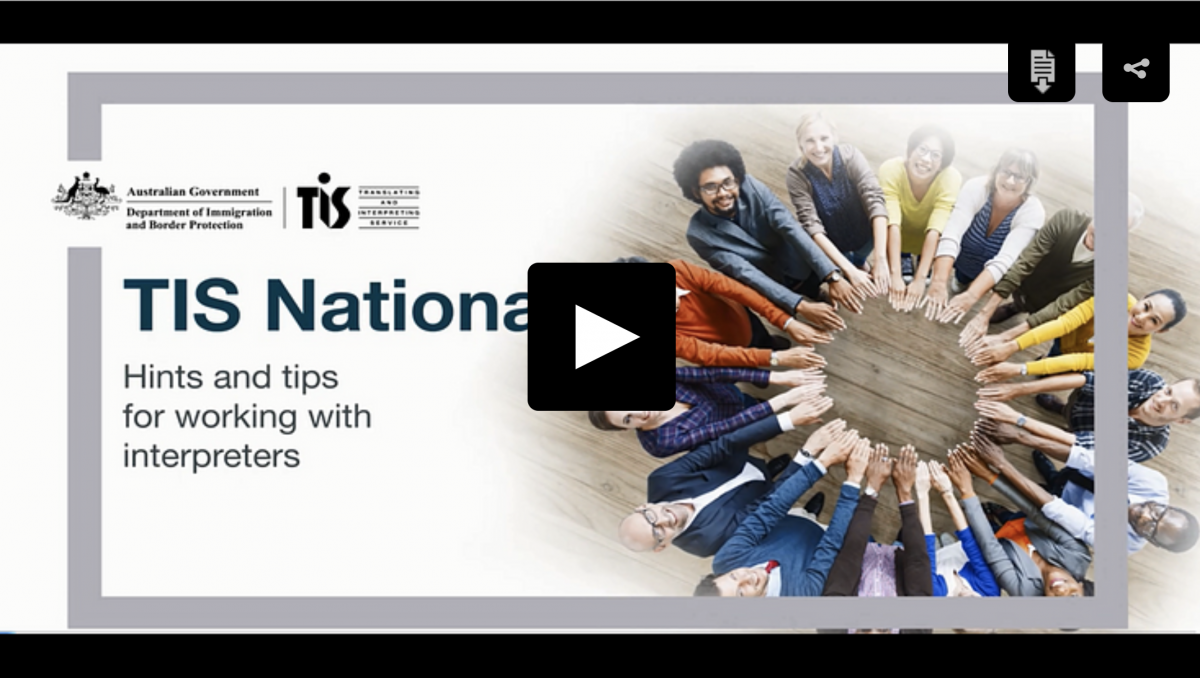Cross-cultural Communication
Using Interpreters
|
In the beginning of this story, we learn about the importance of communication and the importance of using interpreters. Your ability to work effectively with interpreters is a core cross-cultural skill. There is a lot to learn. |
|
|
We recommend you check out this workbook:
|
Or you may prefer to watch a brief video:
|
Beyond Interpreters
In the video, Kelly is describing what the workers at her service do to effectively communicate with Malek and Khairie. She describes the importance of asking questions and of not making assumptions. These are two critical cross-cultural communication skills.
Another core cross-cultural communication skill that Kelly is hinting at is active listening. Active listening is so much more than simply listening.
“[Active listening] requires that we get inside the speaker, that we grasp, from his [sic] point of view, just what it is he is communicating to us. More than that, we must convey to the speaker that we are seeing things from his point of view”
(Rogers, C and Farson, R: Active listening
http://wholebeinginstitute.com/wp-content/uploads/Rogers_Farson_Active-Listening.pdf)
Rogers also said that there are 3 critical elements of listening:
- Listen for total meaning (both content and feeling/attitude)
- Respond to feelings (acknowledge the feelings in your communication)
- Note all clues (much of communication is non-verbal)
One of the active listening tips commonly referred to is to make eye contact. Yet, many people say that men and women communicate differently and that they listen differently. Men are said to stand next to each other without much eye contact to talk about important things, while women are said to have a lot of eye contact and face each other.
Many of us have also heard that looking directly into the eyes of an elder is a sign of disrespect in many cultures, including many Aboriginal and Torres Strait Islander communities, while exactly the opposite is true for other cultures.
In actively listening to people who are different from ourselves, will we all have to learn about how active listening works in different cultures?
Just thinking about ethnicity alone – there are people from over 200 different countries living in Australia and that is not taking into account all the differences within those communities. And on top of that, we also know that no cultural stereotype is true for all members of a community. The above examples are not true for all men nor all women, nor for all members of a particular cultural group.
Therefore specific cultural knowledge about active listening may or may not be useful, because it may or may not be applicable in a particular situation with a particular individual.
When thinking about active listening, it is important to think of it as just one of your skills. One skill will never work in all situations. Working with human beings is not like being an electrician; we are not wired to standard specifications. We can use active listening and we can also learn more about different aspects of communicating as you connect with someone who is different from you.
Carl Rogers also said active listening is to grasp someone’s meaning from their point of view. This means it is the role of the listener to try and step outside their own way of seeing something and trying on someone else’s experience (those of you who have watched Faiz’s story understand the link to empathy here).
Active listening is clearly happening in the relationship between Halima, Shinila and Saida. But there is so much more going on here in the next section on Choice and Control.
I acknowledge that my work is conducted on the land of Aboriginal and Torres Strait Islander nations. I pay my respects to Elders past, present and future, for they hold the memories, traditions, Cultures and aspirations of Aboriginal and Torres Strait Islander communities. Sovereignty was never ceded.
|
futures Upfront
PO BOX 882, Marrickville NSW 1475 Phone: (+61) 0468 312 515 Email: i[email protected] |
|
© Copyright 2021 futures Upfront


